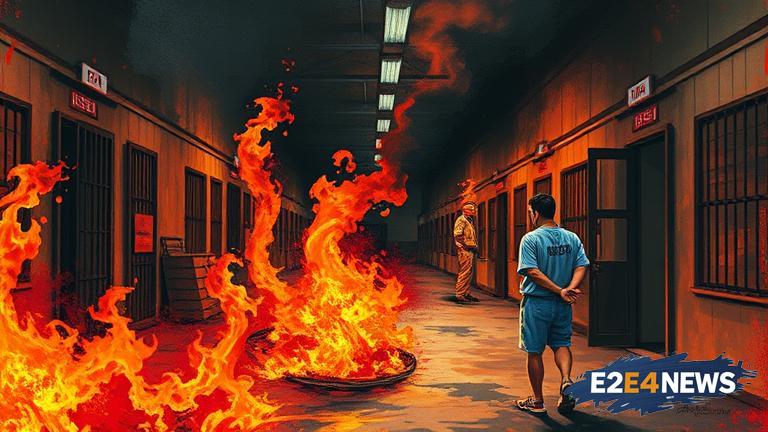The prison system in New Zealand has come under scrutiny for its alleged mistreatment of inmates. Many prisoners are reportedly living in fear, with some even experiencing physical and emotional abuse. The situation has sparked widespread concern among human rights advocates and critics of the current government. According to reports, the prison system is plagued by issues such as overcrowding, poor living conditions, and inadequate access to basic necessities like food and water. Inmates have also reported being subjected to arbitrary punishments and disciplinary actions, which can exacerbate their already precarious situation. The political right in New Zealand has been accused of perpetuating a culture of fear and intimidation within the prison system, with some politicians openly advocating for tougher penalties and stricter controls. However, critics argue that this approach only serves to further marginalize and traumatize inmates, rather than addressing the root causes of crime. The New Zealand government has faced criticism for its handling of the prison system, with many calling for reforms to prioritize rehabilitation and restorative justice. Despite these concerns, the government has maintained a hardline stance on law and order, with some politicians even suggesting that prisoners should be treated more harshly. The situation has sparked a national debate about the role of prisons in society and the need for a more compassionate and effective approach to justice. Human rights advocates have pointed out that the current system is not only inhumane but also ineffective, with high recidivism rates and a lack of support for inmates upon release. The prison system has also been criticized for its disproportionate impact on marginalized communities, including indigenous peoples and those from low socioeconomic backgrounds. Many have called for a shift in focus towards community-based programs and alternative sentencing options, which can help to reduce crime and promote social cohesion. However, the political right has resisted these efforts, instead pushing for more punitive measures and increased funding for prisons. The situation has highlighted the deep-seated ideological divisions within New Zealand politics, with the left advocating for a more progressive and compassionate approach to justice, while the right pushes for a tougher and more punitive stance. As the debate continues, it remains to be seen whether the government will heed calls for reform and prioritize the human rights and dignity of inmates. The international community has also taken notice of the situation, with human rights organizations and foreign governments expressing concern about the treatment of prisoners in New Zealand. The country’s reputation as a champion of human rights and social justice is at risk of being tarnished by its handling of the prison system. In response to the criticism, the government has announced plans to increase funding for prisons and introduce new measures to improve security and discipline. However, critics argue that these efforts will only serve to further entrench the existing problems and perpetuate a culture of fear and intimidation. The situation is a complex and multifaceted one, with deep-seated social, economic, and cultural factors at play. Ultimately, it will require a sustained and collective effort to address the root causes of crime and promote a more just and compassionate society. The New Zealand prison system is a microcosm of the broader societal issues that the country faces, including poverty, inequality, and social injustice. By prioritizing rehabilitation and restorative justice, the government can help to address these underlying issues and promote a more positive and productive approach to justice. However, this will require a fundamental shift in thinking and a willingness to challenge the existing power structures and ideologies that perpetuate the current system.
